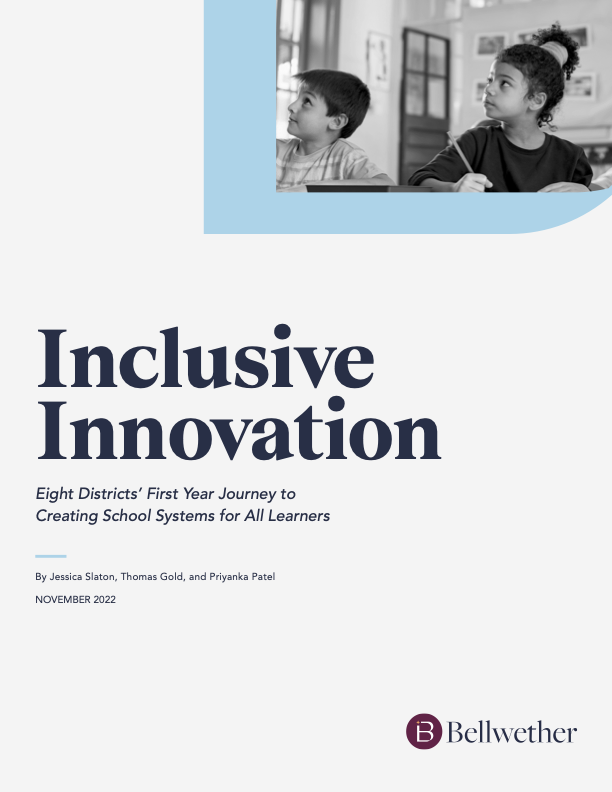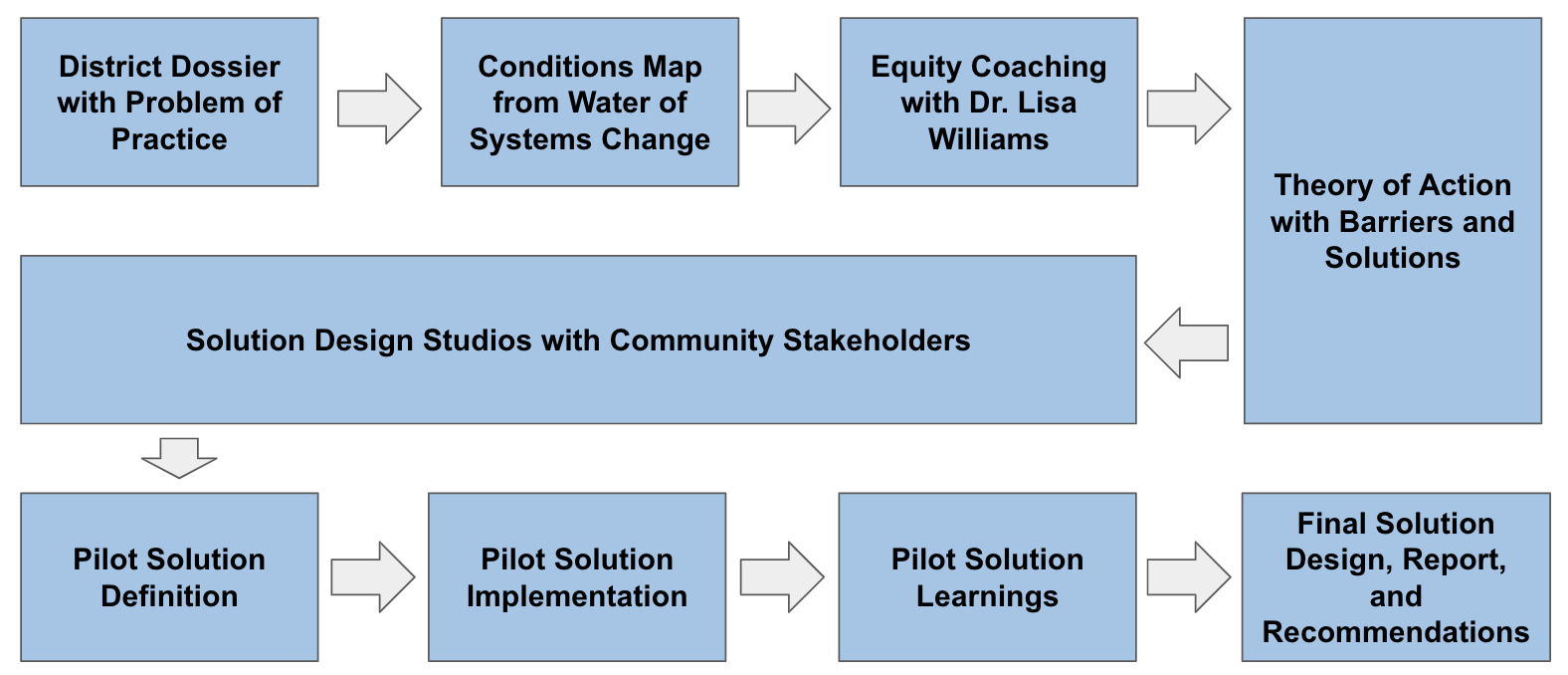 This initiative was launched in 2020 after a group of districts from the League of Innovative Schools participated in a study tour to the Toronto School District Board to learn about how the 250,000 student district had implemented equitable systems design. After the study tour, the participating districts were eager to work as a collaborative on systems change challenges in the areas of equitable learning pathways and teacher cultural development. Each district chose to focus on a context-specific problem of practice with the aim of enacting equitable systems-level change to create opportunities for diverse youth to thrive.
This initiative was launched in 2020 after a group of districts from the League of Innovative Schools participated in a study tour to the Toronto School District Board to learn about how the 250,000 student district had implemented equitable systems design. After the study tour, the participating districts were eager to work as a collaborative on systems change challenges in the areas of equitable learning pathways and teacher cultural development. Each district chose to focus on a context-specific problem of practice with the aim of enacting equitable systems-level change to create opportunities for diverse youth to thrive.
This Inclusive Innovation project was designed to achieve four goals:
Year 1
Year 2

Through their system level analysis, each district developed and refined an equity-centered problem of practice. Below is a summary of the districts’ problems of practice and the pilot solutions designed to address them.
| Problem of Practice | Pilot Solution |
|---|---|
|
How can we intentionally increase high school graduation rates among English Learners? |
Build a system of early intervention and communication structures for parents of English Learners and teachers |
|
How can we address the disproportionality in our exclusionary discipline data for African American students? |
Engage building leaders (principal supervisors and principals) to conduct root causes analysis and co-design interventions with students to interrupt the over-suspension of African American students |
|
How can we understand and address why Brown and Black students are not pursuing higher education opportunities or gaining sustainable employment? |
Implement professional learning to shift mindsets toward “All Means All” and provide logistical supports to enable teachers to effectively implement a career pathways program in grades 6-8 |
|
How can we identify and scale high-leverage strategies that eliminate racial disparities, disproportionalities, and predictability? |
Develop a structure and process that allows for strengthened partnerships to be developed between the state agency and Regional Educator Networks and identify equity-driven progress measures that support educators at all levels of the system so students can thrive |
|
How can adults in the district develop the capacity and cultural competency to promote the identity development and self-efficacy of Black and Brown students? |
Co-design and operationalize feedback loops with Black and Brown parents with mechanisms for building relationships and school leadership accountability |
|
How can we increase the college and career readiness rate among African American & Black and Hispanic & Latino/a/x students? |
Empower Shared Leadership Teams to lead equity-centered professional learning for their staff |
| Problem of Practice |
How can we intentionally increase high school graduation rates among English Learners? |
|---|---|
| Pilot Solution |
Build a system of early intervention and communication structures for parents of English Learners and teachers |
| Problem of Practice |
How can we address the disproportionality in our exclusionary discipline data for African American students? |
| Pilot Solution |
Engage building leaders (principal supervisors and principals) to conduct root causes analysis and co-design interventions with students to interrupt the over-suspension of African American students |
| Problem of Practice |
How can we understand and address why Brown and Black students are not pursuing higher education opportunities or gaining sustainable employment? |
| Pilot Solution |
Implement professional learning to shift mindsets toward “All Means All” and provide logistical supports to enable teachers to effectively implement a career pathways program in grades 6-8 |
| Problem of Practice |
How can we identify and scale high-leverage strategies that eliminate racial disparities, disproportionalities, and predictability? |
| Pilot Solution |
Develop a structure and process that allows for strengthened partnerships to be developed between the state agency and Regional Educator Networks and identify equity-driven progress measures that support educators at all levels of the system so students can thrive |
| Problem of Practice |
How can adults in the district develop the capacity and cultural competency to promote the identity development and self-efficacy of Black and Brown students? |
| Pilot Solution |
Co-design and operationalize feedback loops with Black and Brown parents with mechanisms for building relationships and school leadership accountability |
| Problem of Practice |
How can we increase the college and career readiness rate among African American & Black and Hispanic & Latino/a/x students? |
| Pilot Solution |
Empower Shared Leadership Teams to lead equity-centered professional learning for their staff |
District Dossier Template: A planning document used by districts to describe their context, current conditions, and existing equity initiatives as well as their problem of practice and desired outcomes.
Equity Use Case Template: A planning document used by districts to describe students furthest from opportunity and identify barriers to equity impacting these students at both the classroom and systems levels.
Theory of Action Template: A document used by districts to align existing barriers to equity with systems level shifts they wish to make, actions that will support those shifts, and anticipated outputs and outcomes.
Pilot Planning Template: After engaging in design studios to gather input from and ideate with community stakeholders, districts developed pilot solutions to address their problems of practice.
Implementation & Iteration Tracking Template: Once they had developed their pilots, districts used this document to plan for implementation, evaluation, and iteration of their pilot solutions.